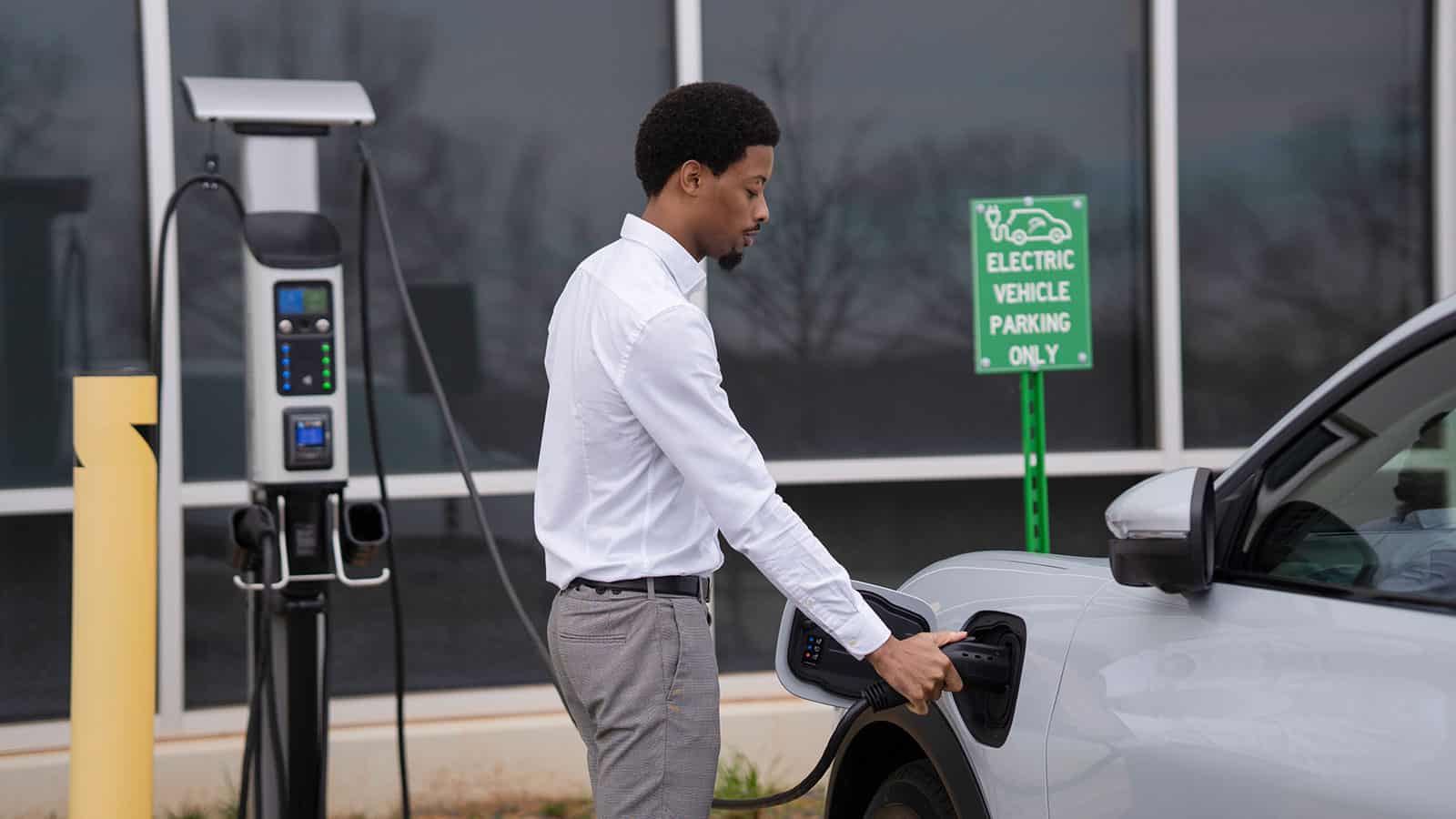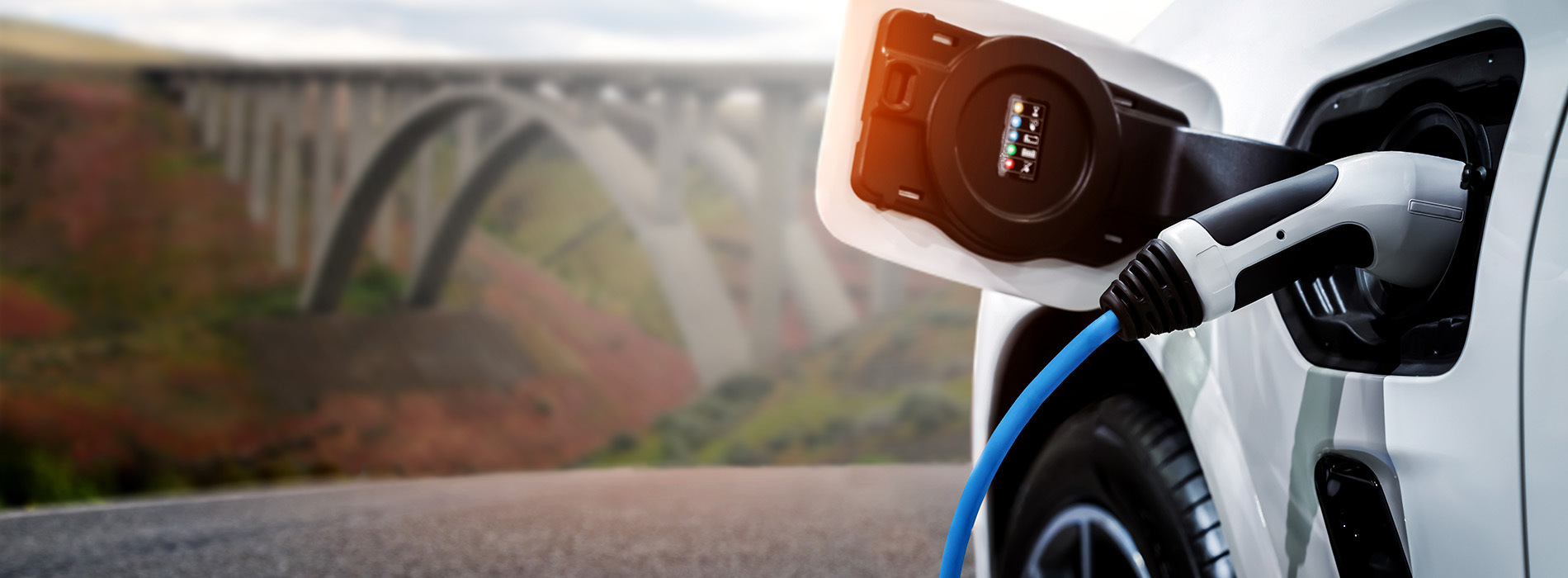Leading EV Charging Information: Key Updates on Facilities and Advancement

Current Innovations in Fast-Charging Technology

Furthermore, innovations in battery technology, consisting of boosted thermal management systems and higher power density batteries, enhance fast-charging capabilities. These advancements minimize the risk of battery deterioration throughout rapid charging, making sure longevity and performance for EV owners.
In addition, the integration of smart charging remedies is enhancing individual experience, making it possible for real-time monitoring and dynamic prices versions. EV Charging news. This adaptability allows motorists to maximize billing times and costs based on grid demand
As car manufacturers remain to purchase fast-charging networks, the partnership in between sector stakeholders is crucial. Partnerships between billing terminal carriers and automotive manufacturers are paving the method for substantial insurance coverage, ultimately fostering a more robust EV community. These improvements are essential in sustaining the shift to lasting transport.
Federal Government Efforts for Billing Development
Federal government efforts play an essential role in the expansion of electric lorry (EV) billing framework, promoting the shift to sustainable transport. Different federal and state programs are being executed to enhance charging access, minimize the monetary burden on consumers, and advertise the adoption of electric cars.
Especially, the united state government has allocated significant financing through the Facilities Investment and Jobs Act, which allocates $7.5 billion for EV billing network development throughout the country. This funding is intended at deploying hundreds of brand-new charging terminals, especially in underserved areas, therefore attending to range stress and anxiety among potential EV purchasers.
Additionally, countless states are passing legislation to enhance the allowing procedure for billing station installations, which is vital for speeding up deployment. Rewards such as tax obligation credit reports and refunds for both consumers and organizations are also being presented to encourage the installment of charging facilities.
Furthermore, public-private collaborations are significantly ending up being an emphasis, leveraging private financial investment to match federal government funding. These efforts emphasize a collaborative technique essential for constructing a efficient and extensive EV billing network, inevitably adding to a greener and more sustainable future.
Cutting-edge Battery Solutions Enhancing Effectiveness
Changing the landscape of electrical vehicle (EV) innovation, ingenious battery remedies are dramatically boosting effectiveness and efficiency. Breakthroughs in battery chemistry, particularly with lithium-sulfur and solid-state batteries, are resulting in boosted power density, which permits for longer ranges and faster charging times. These new battery types have the prospective to outshine typical lithium-ion batteries browse around this site by supplying greater capacities while reducing weight, thereby improving overall car efficiency.
Moreover, advancements in battery administration systems (BMS) are maximizing power use and extending battery lifespan. Intelligent formulas monitor battery health and performance, making it possible for real-time changes to billing and releasing processes. This not just improves the effectiveness of the battery but also ensures an extra lasting and trustworthy power source for EVs.
Moreover, the assimilation of reusing innovations is addressing the environmental impact of battery production and disposal. Innovations in second-life applications for EV batteries are promoting their usage in energy storage systems, contributing to a round economic climate.
As these cutting-edge battery options remain to develop, they guarantee to change the EV market, making electrical vehicles much more obtainable and appealing to a more comprehensive audience while sustaining worldwide sustainability goals.

Collaboration Between Automakers and Billing Networks
Recognizing the essential requirement for a robust billing framework, automakers are progressively teaming up with charging network companies to enhance the EV ownership experience (EV Charging news). These partnerships intend to create a smooth charging ecosystem that benefits consumers and supports the change to electrical vehicles
Significant auto brands are joining forces with established billing networks to increase their billing station coverage, ensuring motorists have accessibility to convenient and reliable billing alternatives. Collaborations with networks like ChargePoint and Electrify America permit car manufacturers to incorporate billing remedies straight into their lorries' navigating systems, guiding customers to the nearby stations and supplying real-time schedule updates.
Furthermore, these collaborations often result in the growth of fast-charging innovations that significantly decrease the moment required to recharge an EV. By merging resources and knowledge, car manufacturers and billing networks can introduce faster, producing services that satisfy the expanding need for electrical wheelchair.
On top of that, joint efforts may likewise bring about more standardized billing protocols, which can reduce consumer confusion and advertise wider EV fostering. Generally, these critical partnerships are crucial in developing a user-friendly and reliable charging framework that fulfills the demands of a broadening electrical car market.
Obstacles Encountering EV Billing Framework
As the electrical vehicle market remains to expand, numerous challenges are surfacing that impede the advancement of a detailed billing facilities. One of the key barriers is the inadequate number of charging terminals, specifically in rural and underserved city areas. This gap produces range anxiety among possible EV purchasers, discouraging them from making the button.
In addition, the lack of standardization in charging modern technology complicates the facilities landscape. Variations in plug kinds and charging rates can produce confusion for individuals and boost operational intricacies for billing network drivers.
An additional pressing problem is the high expense associated with the setup and maintenance of charging stations, which can be a barrier for both public entities and private organizations. Ultimately, regulatory hurdles and zoning restrictions can delay the implementation of charging infrastructure, hindering click here for more progression in increasing vital services. Resolving these obstacles will certainly be critical for promoting a robust EV community that supports the shift to sustainable transport.
Final Thought
To check my reference conclude, the ongoing innovations in EV charging innovation, supported by significant government campaigns and cutting-edge battery options, are essential for the growth and performance of electrical lorry facilities. Cooperations between car manufacturers and charging service providers additionally enhance station coverage, resolving the expanding demand for accessible billing options. Regardless of challenges that persist within the EV charging landscape, these developments indicate a favorable trajectory in the direction of a more reliable and lasting electric car ecological community.
Advancements in charging framework have led to the advancement of ultra-fast battery chargers qualified of delivering up to 350 kW of power, dramatically decreasing billing times. Variations in plug types and billing speeds can create complication for individuals and boost operational intricacies for charging network drivers.In final thought, the ongoing improvements in EV billing modern technology, supported by substantial federal government efforts and innovative battery remedies, are critical for the growth and efficiency of electrical car infrastructure. Partnerships between car manufacturers and charging companies further boost station insurance coverage, attending to the growing demand for accessible charging alternatives. In spite of obstacles that continue within the EV billing landscape, these advancements indicate a positive trajectory towards a more reliable and sustainable electric lorry environment.